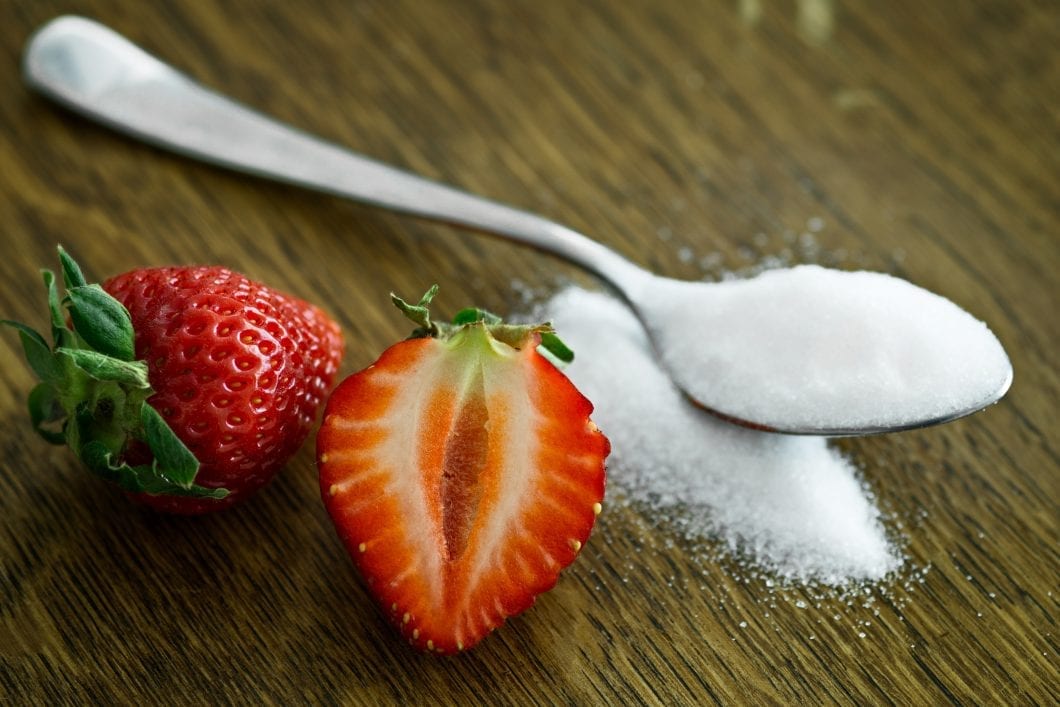There are so many diet plans out there that advocate completely eliminating sugar from your diet, but you might be surprised to know that your brain actually needs sugar to function properly. Brain functions like thinking, memory, and learning are affected by glucose levels, and when you don’t get enough, those functions can become impaired. So yes, some sugar is actually good for you. Too much, however, and the effects of sugar start to turn negative.
According to the American Heart Association, women shouldn’t get more than 25g of sugar a day; men shouldn’t get more than 38g. However, we often get 2-3 times more sugar than the daily recommended intake. Much of this comes from our diet being so high in processed foods.
After your brain uses what amount of glucose it needs, extra glucose begins to have the opposite effect, and actually reverses the positive effects and takes its toll not only on your brain functions but also on your physical and mental wellbeing.
The Effects of Sugar on Your Body and Brain
We know that too much sugar can lead to weight gain, but it can have much more serious internal effects both in your body and on your brain.
It makes you crave more sugar
Sugar gives you an almost-immediate spike in energy but that spike in energy only lasts a short period of time. After that, you crash, which means you’ll need even more sugar to bring your energy back up.
It doesn’t fill you up
You’re starving, and you think, “I’ll just grab a candy bar from the vending machine at work.” 15 minutes later, however, you’re hungry again! That’s because sugar doesn’t help to satiate hunger. Along with still being hungry, you’re also going to feel lethargic as your energy quickly crashes.
It impairs your memory and learning
The brain is especially susceptible to dietary influences during adolescence when your brain is still developing. High consumption of high fructose corn syrup can actually lead to difficulty learning and trouble remembering things you’ve already learned.
It can cause or contribute to depression or anxiety
Constant energy spikes and crashes caused by sugar can trigger anxiety or depression if you already live with a mental illness. It can’t directly cause anxiety, but a sugar high followed by a crash can exacerbate symptoms of anxiety.
It can lead to a greater risk of developing a neurodegenerative disease
Recent studies show that the same factors that cause diabetes are also associated with an increased risk of developing neurodegenerative diseases like Alzheimer’s. High blood glucose can cause earlier onset Alzheimer’s, and people with diabetes are more likely to develop dementia at some point.
What to Do About Your Sweet Tooth
Sugar is addictive. The more you eat, the more you crave it and the more you need to add to your food to taste it. Instead of eating foods loaded with processed sugar, opt for foods that contain natural sugar.
Fruit
Although fruit can still be high in glucose, natural sugar is significantly better for your health than processed sugar. Since you do still need sugar in your diet, it’s important to make sure you’re consuming the right kind. To make your fruit feel more like dessert, throw it into a blender and make a smoothie or top a bowl of chopped up berries with some whipped cream.
Other Natural Sugars
If you really want dessert, and who doesn’t occasionally, opt for homemade and all-natural desserts. Foods like honey, all-natural ice cream, and dark chocolate are still sugary; too much of any of them will still negatively affect your health. Still, all-natural foods are a better alternative for your health compared to highly processed products.



